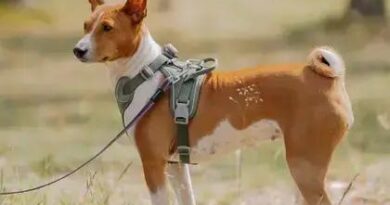What is: Appetite loss in senior dogs
What is Appetite Loss in Senior Dogs?
Appetite loss in senior dogs refers to a significant decrease in the desire to eat, which can be concerning for pet owners. As dogs age, their nutritional needs change, and various factors can contribute to a reduced appetite. Understanding the underlying causes of this condition is crucial for ensuring the health and well-being of your aging canine companion.
Common Causes of Appetite Loss
There are several reasons why senior dogs may experience appetite loss. Medical conditions such as dental disease, gastrointestinal issues, kidney disease, and cancer can all impact a dog’s desire to eat. Additionally, changes in metabolism and hormonal imbalances can also play a role. It’s essential for pet owners to monitor their dogs closely and consult a veterinarian if appetite loss persists.
Behavioral Factors Influencing Appetite
Behavioral changes can also lead to appetite loss in senior dogs. Stress, anxiety, or changes in the home environment, such as the introduction of new pets or family members, can affect a dog’s eating habits. Furthermore, cognitive decline, which is common in older dogs, may result in confusion or disinterest in food. Recognizing these behavioral factors can help owners address the issue effectively.
Signs of Appetite Loss
Pet owners should be vigilant for signs of appetite loss in their senior dogs. These signs may include a noticeable decrease in food intake, reluctance to eat favorite treats, or a general disinterest in food. Additionally, weight loss, lethargy, and changes in bathroom habits can indicate that a dog is not receiving adequate nutrition. Observing these signs early can lead to timely intervention.
Impact of Appetite Loss on Health
When senior dogs experience appetite loss, it can have serious implications for their overall health. Prolonged periods without adequate nutrition can lead to weight loss, muscle wasting, and a weakened immune system. This can make them more susceptible to infections and other health issues. Therefore, addressing appetite loss promptly is essential to maintain their quality of life.
Veterinary Evaluation and Diagnosis
If a senior dog shows signs of appetite loss, a thorough veterinary evaluation is necessary. The veterinarian will conduct a physical examination, review the dog’s medical history, and may recommend diagnostic tests such as blood work or imaging studies. Identifying the underlying cause of appetite loss is crucial for determining the appropriate treatment plan.
Treatment Options for Appetite Loss
Treatment for appetite loss in senior dogs varies depending on the underlying cause. If a medical condition is identified, addressing that condition is the first step. In some cases, dietary changes, appetite stimulants, or medications may be recommended to encourage eating. Additionally, providing a comfortable and stress-free feeding environment can also help improve a dog’s appetite.
Home Care Strategies
Pet owners can implement several home care strategies to help manage appetite loss in senior dogs. Offering smaller, more frequent meals can make eating less overwhelming. Experimenting with different food types, such as wet food or homemade meals, may also entice a dog to eat. Ensuring that fresh water is always available and maintaining a consistent feeding schedule can further support a senior dog’s nutritional needs.
When to Seek Immediate Help
It is crucial for pet owners to know when to seek immediate veterinary help for appetite loss in senior dogs. If a dog refuses to eat for more than 24 hours, shows signs of severe lethargy, vomiting, diarrhea, or any other concerning symptoms, prompt veterinary attention is necessary. Early intervention can prevent more serious health complications and improve the chances of recovery.




